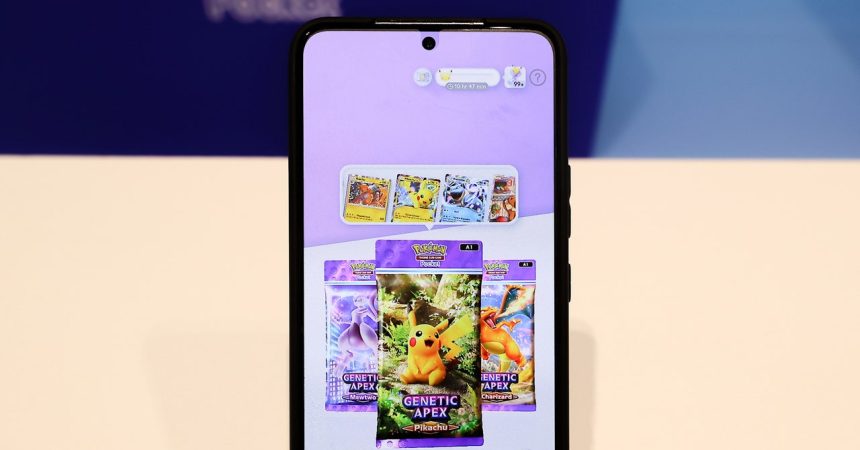The Pokémon Trading Card Game Pocket, a free-to-play mobile adaptation of the beloved physical card game, has found itself embroiled in controversy following the introduction of its long-awaited trading system. Since the game’s launch last October, players have eagerly anticipated the ability to trade cards, a core element of the Pokémon franchise. However, the implementation of this feature has been met with widespread criticism and threats of subscription cancellations, leaving players feeling disillusioned and questioning the game’s direction.
The crux of the issue lies in the perceived complexity and restrictiveness of the trading system. Unlike other Pokémon games, where trading is a relatively straightforward process requiring only an internet connection and the desired Pokémon, Pocket introduces several layers of limitations. Players must expend stamina, which replenishes slowly over time or requires the use of specific items. Furthermore, trades necessitate Trade Tokens, which are scarce and difficult to acquire. These tokens can be earned through special events or by sacrificing existing cards, a process particularly challenging for players lacking duplicates. This convoluted system has sparked outrage among players who view it as a thinly veiled attempt to incentivize in-app purchases, pushing them towards spending real money to acquire the necessary items and expedite the trading process.
The negative reaction to the trading system is in stark contrast to the initial excitement surrounding Pocket’s launch. The game successfully captured the nostalgic appeal of collecting Pokémon cards, offering a digital platform for players to amass virtual decks and engage in battles against AI opponents or other players online. The frequent release of new card sets further fueled the collecting frenzy, mirroring the gotta-catch-’em-all mentality that defined the franchise’s early popularity. However, the implementation of the trading feature has undermined this positive momentum, leaving players frustrated and questioning the developers’ decisions.
The contrast between Pocket’s trading system and the seamless trading mechanics of other Pokémon games further underscores the players’ discontent. In titles like Pokémon Legends: Arceus and Pokémon Go, trading is a simple and accessible feature, facilitating easy exchanges between players. This stark difference highlights the perceived unnecessary complexity of Pocket’s system, fueling the perception that it is designed to extract money from players rather than enhance their gameplay experience. Players argue that the cumbersome process diminishes the joy of trading, a core element of the Pokémon experience, and transforms it into a frustrating and costly endeavor.
The backlash against the trading system is evident across various online platforms, including Reddit, X (formerly Twitter), YouTube, and even the game’s official website. Players have voiced their concerns and frustrations, sharing screenshots of their complaints and cancelled premium subscriptions as a form of protest. The $9.99 monthly premium membership, which grants access to additional perks and items, has become a focal point of the player revolt. Many have threatened to cancel their subscriptions, hoping to send a clear message to the developers that the current trading system is unacceptable and financially detrimental to the game’s long-term success.
The developers of Pokémon Trading Card Game Pocket now face a critical juncture. The overwhelmingly negative response to the trading system threatens to erode the game’s player base and damage its reputation. While some players appreciate the system as a way to manage duplicate cards, the vast majority view it as an unnecessary complication and a barrier to enjoying a fundamental aspect of the Pokémon experience. The developers must carefully consider the players’ feedback and address their concerns if they hope to retain their player base and restore faith in the game’s future. Whether they will choose to revamp the trading system or double down on their current approach remains to be seen, but the future of Pokémon Trading Card Game Pocket hinges on their response to this growing player revolt.



